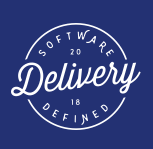
A group of industry leaders led by Rod Johnson, CEO of delivery automation company Atomist, say that the standard for delivering software should be software-defined. During his keynote address at the GOTO Copenhagen conference today, Johnson presented the Software Defined Delivery Manifesto, which outlines the value of the technology and the authors’ dedication to advancing software-defined delivery
In the manifesto, the authors wrote that software-defined delivery is core, engineered, collaborative, accelerated and observable, and frees up human workers to make decisions while letting the machines handle repetitive, automatable tasks.
“The work of delivery is inherently unique,” the authors of the manifesto (in whole: Pulumi’s Marc Holmes, Tasktop’s Mik Kersten, ChaosIQ’s Russ Miles, IBM’s Erin Schnabel, Pivotal’s Matt Stine and Atomist’s Jessica Kerr and Johnson) wrote. “Each combination of application, organization, deployment environment, and team has its own context. We recognize that each team needs delivery and automation that comprehends that uniqueness. We recognize that while continuous delivery is essential to meeting business needs, automating all repeated tasks is important.”
Instead of relying on disparate technologies, the manifesto emphasizes, software-defined delivery allows developers to further utilize their skills in “modern architecture and programming languages plus frameworks, libraries and services for generic capabilities” and make delivery a natural extension of the development process.
“We recognize that delivering useful software shapes our world. We recognize that code is the best way to specify precise action,” the authors wrote. “We recognize that code is only useful when we deliver it.”
The release of the manifesto accompanied Atomist’s announcement of its Software Delivery Machine (SDM) 1.0, the first full release since the project was made open-source in August. The release incorporates features based on the feedback of users and the open source community, such as enhanced approvals, an extension pack model, log streaming and goal-tracking.
“The big idea of SDM is that actions like builds or deployments should be driven from events and defined in code rather than a cringe-worthy mix of YAML definitions and Bash scripts typical of legacy CI/CD tools,” Christian Dupuis, Atomist’s VP of engineering, said in the announcement. “The SDM provides a framework for developing delivery and the runtime for executing it.”






